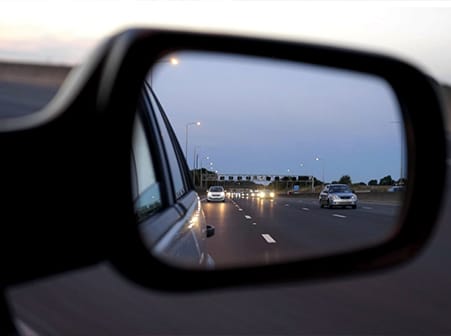More enforcement and bigger fines – that’s what drivers in the South West think will make roads safer, according to a ground-breaking new study.
A survey organised by Alison Hernandez, Police and Crime Commissioner for Devon, Cornwall and the Isles of Scilly, attracted almost 7,000 responses from local drivers who wanted to air their views on road safety.
Commissioner Hernandez is not only the road safety lead for the APCC but also chair of the Vision Zero South West road safety partnership.
Of those who completed the study:
- 75% (5,107) said they witnessed road traffic offences such as drivers using mobile phones, speeding or not wearing a seatbelt on a daily or weekly basis
- 79% (5,381) said they thought road traffic offences in their areas required more enforcement
- 69% (4,704) said they supported increasing fixed penalty fines from £100 to £200
- 86% (5,850) agreed that the money raised through fines should be reinvested in enforcement and road safety measures to keep people safer
- Overall in Devon and Cornwall, 44% of people said they safe or very safe on the roads, more than the 30% who said they felt unsafe or very unsafe
These results in Devon and Cornwall echo the results of the survey nationally, which attracted more than 66,000 responses.
The study will be used to influence a Department for Transport (DfT) consultation on roads policing.
The results come as new DfT figures show that 1,752 people were killed in Great Britain last year in road accidents, of these 287 were children or young people. Although a 2% drop on the previous year the number of fatalities has remained broadly similar year on year since 2010, which followed a period of substantial reductions in casualties.
Commissioner Hernandez said: “I would like to thank all of those who took part in this survey, I was pleased we had a fantastic response but not surprised because I know there is a great deal of public concern about this issue.
“Now we have the evidence to show Government that there is a strong public desire for greater penalties for those who put lives at risk and a desire for increased enforcement.
“Members of the public have clearly had enough of seeing people flouting the laws designed to protect them and their loved ones. They have had enough of hearing about or being directly affected by the deaths of men, women and children and the thousands of lives blighted by injury on our roads.
“Law enforcement needs to link-up technology, such as Automatic Number Plate Recognition (ANPR), to better exploit the data and intelligence they have to crack down on the dangers on our roads. This will help to both reduce the terrible death toll and detect serious offenders.”
Commissioner Hernandez will now lobby for a rise in the level of fixed penalty notices for speeding and failure to wear a seatbelt and will call for revenues raised to be reinvested in local area road safety initiatives and roads policing.
“We know that some people are more likely to drive recklessly when they think there is less likelihood of them being caught,” she said.
“During lockdown there were some extraordinary examples of people putting lives at risk because they believed police were busy elsewhere and despite a significant decrease in traffic levels we have unfortunately seen a significant number of serious incidents.”
For more information about Vision Zero South West, visit the Facebook page here or our Twitter page here.
You can read the full original release on the Devon and Cornwall OPCC website here.

